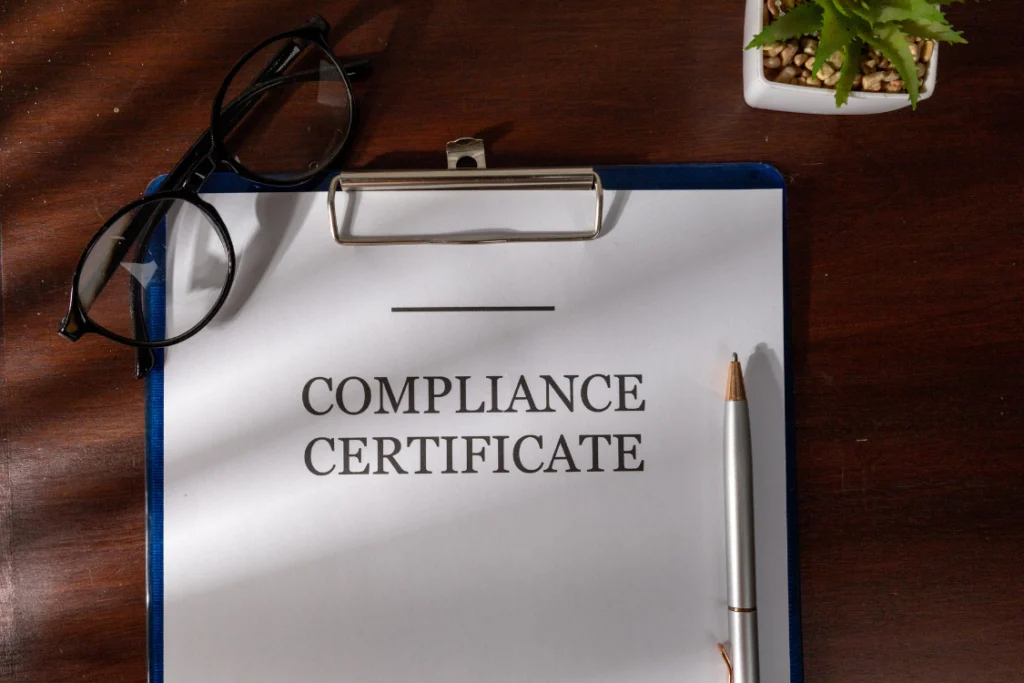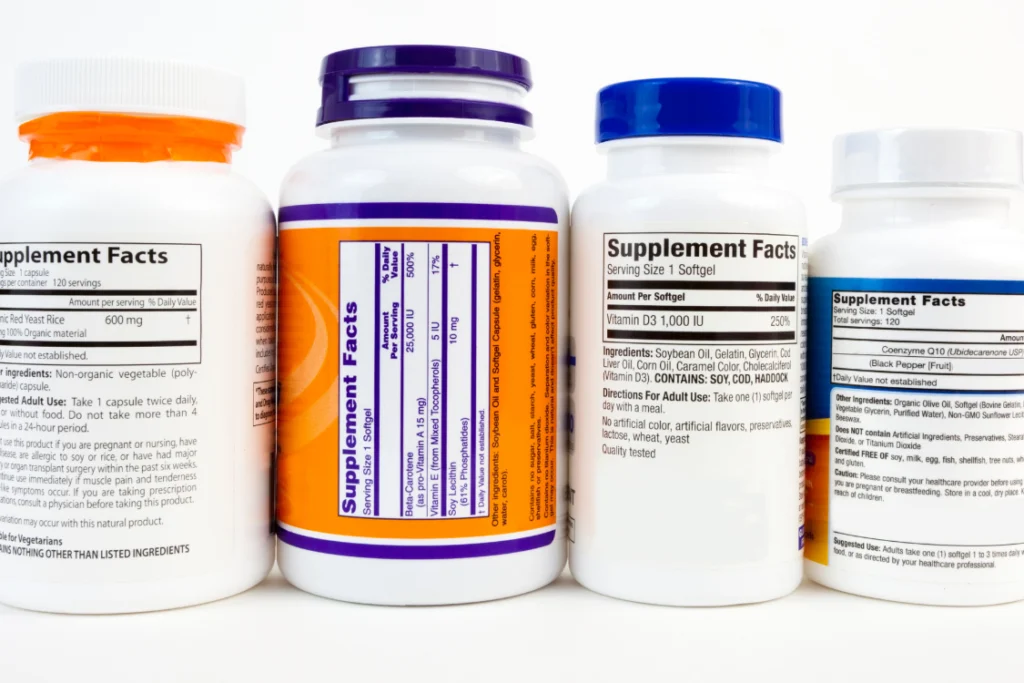Choosing the wrong partner in supplement manufacturing can put your business at risk of recalls, fines, or long-term damage to your reputation. One of the most effective ways to protect yourself is to request supplement manufacturer compliance documents before signing any contract.
These records reveal how a company manages quality control, complies with 21 Code of Federal Regulations (CFR), and adheres to the Federal Food, Drug, and Cosmetic Act. They also confirm that finished dietary supplement batches are tested, properly labeled, and free from contamination.
Examining compliance records upfront provides insight into safety practices, legal history, and the manufacturer’s commitment to producing dietary supplements that consistently meet the specified standards. In short, these documents are not just paperwork. They form the foundation of a partnership that protects your brand and the people who trust your products.
Why Compliance Documents Matter in Supplement Manufacturing
Compliance records indicate whether a manufacturer adheres to current good manufacturing practices and complies with federal food regulations. They also highlight how a company manages its production and process controls, making sure that each particular dietary supplement consistently meets established requirements. Strong documentation demonstrates that the company can perform quality control operations effectively, which is crucial for establishing trust in the broader dietary supplement industry.
Protecting your brand and customers
Shoppers expect dietary supplements with accurate dietary supplement labels that are safe, reliable, and aligned with dietary supplement health standards. Compliance records, such as a supplier’s certificate, logs from quality control checks, and reports of adverse event reporting, demonstrate that the manufacturer uses scientifically valid methods and enforces maintaining adequate personal cleanliness throughout the facility. Evidence of adequate personal cleanliness not only protects consumers from such contamination but also shields your reputation in a highly competitive market.
Avoiding costly mistakes
When a manufacturer fails to establish specifications for ingredients or neglects to establish product specifications for finished goods, the risk of recalls and penalties rises quickly. Failing to meet requirements, such as excluding sick or infected personnel from the production floor or neglecting to maintain a sound statistical sampling plan, puts your entire operation at risk. For contract manufacturers, these oversights can affect multiple clients at once, multiplying the damage. Reviewing compliance records early enables you to identify weaknesses before they disrupt your business, ensuring that no shortcuts are taken with raw materials or safety practices.

Essential Legal and Compliance Documents to Request
Requesting the right paperwork before production begins ensures that the manufacturer can meet dietary supplement specifications and comply with other applicable statutory provisions. These records confirm they can operate within the operating limits required and help you determine compliance with both the Federal Food, Drug, and Cosmetic Act (FFDCA) and the Education Act, which amended regulatory oversight for supplements.
FDA inspection reports
These reports indicate whether the company has faced violations under the FFDCA or failed to maintain proper standards, such as excluding personnel who are sick or infected from production. FDA inspections also reveal whether the facility has had problems with other extraneous materials, unsanitary conditions, or weaknesses in the manufacturing process that could lead to contamination.
GMP (Good Manufacturing Practices) certification
A GMP certificate proves that the facility follows current good manufacturing practice and has systems in place to perform quality control operations effectively. This certification shows that dietary supplements manufactured in the facility meet requirements for safety and consistency. It also ensures that companies establish specifications and apply appropriate controls so every batch aligns with its intended quality.
Third-party audit results
Independent audits provide reassurance beyond internal claims. These reports verify whether contract manufacturers maintain distinct and separate responsibilities for safety, confirm that quality control personnel can ensure proper performance, and check that records support such exempted product specification claims.
Certificates of Analysis (COAs)
A COA confirms that raw materials and finished dietary supplement batches meet label claims. It proves the facility is testing for other toxic materials, contamination, or deviations from meeting component specifications. Without COAs, you cannot be sure your dietary ingredients match what the label promises.
Regulatory registrations and licenses
Compliant supplement manufacturers should provide FDA registrations, state business licenses, and permits as required by other statutory provisions. These records demonstrate that they are authorized to hold dietary supplements and conduct such operations in a manner that is legally compliant.
Product recall history or legal disclosures
Responsible manufacturers will disclose past recalls or legal issues. Reviewing how they handled such a case reveals whether they employed appropriate tests, corrected failures in their computer-controlled process, or overlooked risks. Transparency in this area signals long-term reliability.

How to Request Compliance Documents Without Hurting the Relationship
Requesting documentation does not have to damage trust. When framed correctly, it sets a professional tone and protects both parties.
Position it as part of due diligence
Explain that providing adequate documentation is a normal step in business. It proves that records support a person’s assigned functions and that separate responsibilities related to compliance are clearly defined.
Ask early in the conversation
Bring up compliance before signing contracts. This ensures that the dietary supplement imported or produced meets established standards, giving you time to determine compliance.
Look for openness and responsiveness
Reliable partners share such documentation quickly. If they are confident in their supplement production and standard operating procedures, they will not hesitate to show proof. Timely responses demonstrate that they can ensure proper performance and are committed to regulatory compliance.
Red Flags to Watch for in Compliance Records
Reviewing compliance documents can reveal severe warning signs. Spotting these issues before production begins protects your investment and avoids costly legal battles.
Missing or expired certifications
Outdated GMP certificates, missing supplier certificates, or expired licenses indicate that the company is not maintaining effective quality control operations. Neglect in this area is a serious risk.
Reluctance to share records
If a manufacturer hesitates to release COAs, FDA reports, or information on reporting adverse events, it signals possible gaps in their supplement manufacturing practices.
Repeated FDA or audit violations
A pattern of failures, such as contaminated raw materials, unsafe storage facility conditions, or repeated issues with their process control system, points to systemic problems.

How Compliance Records Build a Stronger Partnership
Compliance records do more than check boxes. They help shape a lasting and reliable relationship between your company and your supplement manufacturer.
Building mutual trust and accountability
When quality control personnel provide records without hesitation, it shows accountability. Each role, from assigning qualified personnel to performing quality control personnel review, is backed by adequate documentation that strengthens the partnership.
Supporting your brand’s marketing claims
Certifications such as GMP, NSF, or Organic provide evidence that a dietary supplement meets specific standards. Sharing this information with customers may support supplement marketing by providing information and may help buyers feel more confident that labeled dietary supplements reflect what is inside the bottle.
Always Ask for Compliance Documents Before You Commit
Requesting compliance documents from supplement manufacturers is one of the most important steps in selecting a trustworthy partner. Reviewing FDA inspection reports, GMP certifications, third-party audits, and Certificates of Analysis ensures your dietary supplements consistently meet required standards. These records shield your brand from recalls, confirm regulatory compliance, and help you earn lasting customer trust. A manufacturer that provides its records openly demonstrates a value for accountability. That kind of transparency lays the groundwork for a partnership built on confidence and consistency.
Frequently Asked Questions
What compliance documents should I ask a supplement manufacturer for?
You should request FDA inspection reports, GMP certification, Certificates of Analysis, third-party audit results, and regulatory licenses.
Why are compliance documents important in supplement manufacturing?
They confirm that dietary supplements meet quality control standards, follow 21 CFR, and comply with federal food safety rules.
How do I check if a supplement manufacturer has FDA compliance issues?
Review the FDA inspection database or request the manufacturer’s most recent compliance reports.
What should I do if a supplement manufacturer refuses to share compliance documents?
A lack of transparency is a red flag. It is best to look for more cooperative contract manufacturers.
Can compliance documents improve my supplement brand’s marketing?
Yes. Certifications such as GMP, NSF, or Organic may be used to support supplement production claims and help build consumer trust in labeled dietary supplements.
References
- Electronic Code of Federal Regulations. (2007). Part 111—Current good manufacturing practice in manufacturing, packaging, labeling, or holding operations for dietary supplements. In Title 21: Food and Drugs. U.S. Government Publishing Office. Retrieved from https://www.ecfr.gov/current/title-21/chapter-I/subchapter-B/part-111
- Lam, C., & Patel, P. (2023, July 31). Food, Drug, and Cosmetic Act. In StatPearls [Internet]. StatPearls Publishing. Retrieved from https://www.ncbi.nlm.nih.gov/books/NBK585046/





